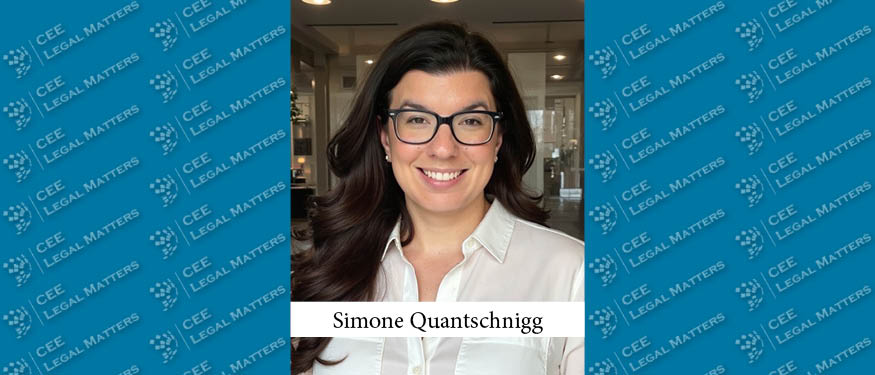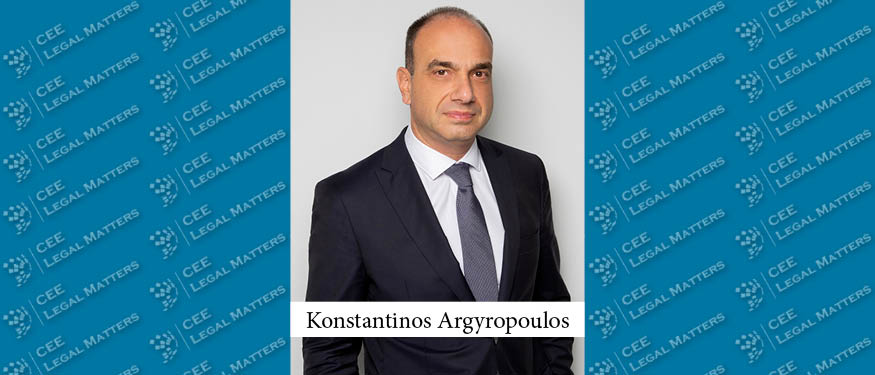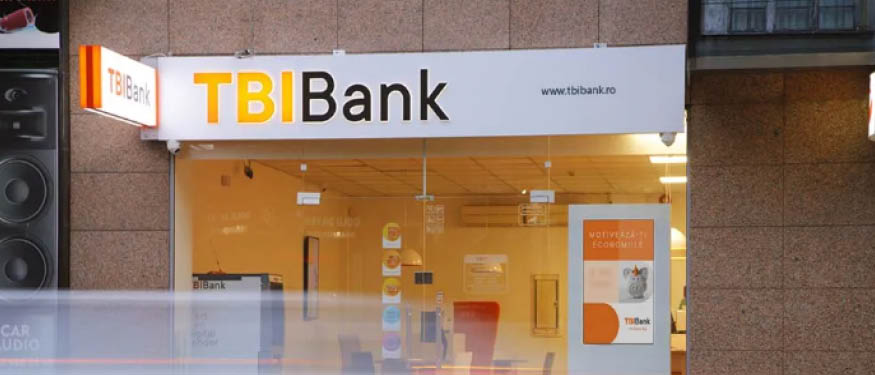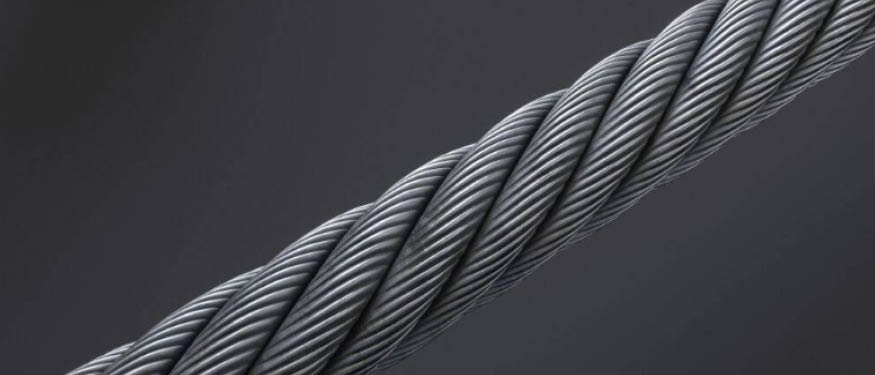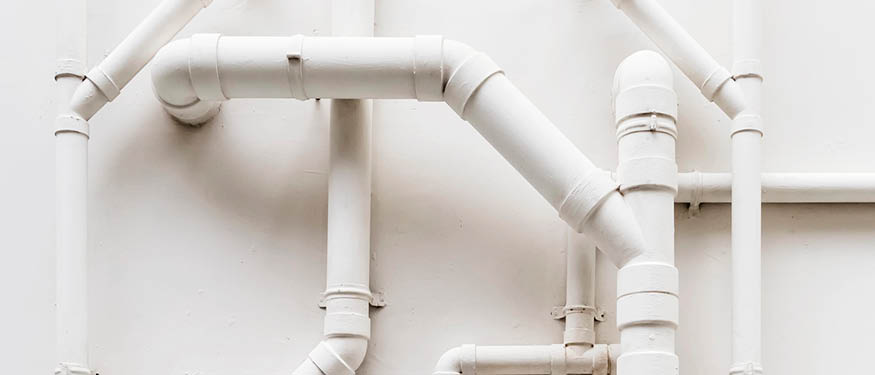Court fees represent an important part of the costs in every legal proceeding. Matters related to court fees in the Republic of Serbia are currently regulated by the Law on Court Fees and the Fee Tariff contained within that law.
In civil proceedings, court fees are paid during or upon the conclusion of the proceedings. The court is not authorized to condition the initiation, continuation, or conclusion of a civil proceeding on the payment of court fees. In case of non-payment of court fees when due, the court can only initiate enforcement proceedings against the fee obligor for the forced collection of the unpaid court fees. In such a case, the amount of the unpaid fee obligation is increased by 50%, and the party against whom the enforcement proceedings are initiated is obliged to bear all the costs of the enforcement proceedings that arise. Therefore, the initiation, course, and conclusion of a civil proceeding are not and cannot be conditioned by the payment of court fees. All of this is due to the fact that the protection of parties' right to access the court takes precedence over the court's and the state's interest in collecting court fees.
However, sporadic practices of certain judges delaying the declaration of enforceability and finality of a court decision that concludes a civil proceeding has been observed in situations where the fee obligor who has succeeded in the dispute has outstanding court fee debts in that specific civil proceeding. This behavior by the court is evidently aimed at "motivating" the fee obligor to pay the due court fees without initiating enforcement proceedings so that they can forcibly enforce the awarded claim granted by the court decision.
Furthermore, if the plaintiff is a foreign citizen or a stateless person without residence in the Republic of Serbia, upon the defendant's request in the civil proceeding, the plaintiff may be required by the court's order to deposit the entire amount of the litigation costs, including the expected amounts of all court fees in the regular course of proceedings, as security for the litigation costs. In this case, the civil proceeding will only continue if the plaintiff complies with the court's order and deposits the amount as security for the litigation costs within the given deadline. Otherwise, the court will issue an order considering the lawsuit withdrawn. Exceptions to this rule exist in cases of reciprocity and/or international agreements that regulate the exemption from the obligation to provide security for litigation costs between states. In other words, if Serbian citizens are not required to provide security for litigation costs in the country whose citizen is the plaintiff, the plaintiff will not be obliged to provide security for litigation costs upon the defendant's request before the court in Serbia. In case of doubt, the Ministry responsible for judicial affairs provides explanations regarding the existence of reciprocity.
1. Who is responsible for paying court fees in a civil proceeding?
The law stipulates that court fees are paid by the parties on whose motion or in whose interest actions are taken in the judicial proceeding. For submissions and minutes that substitute submissions for which the law requires payment of court fees, the fee is the responsibility of the party submitting them or the party on whose request the minutes are prepared.
Furthermore, the law specifies that the plaintiff is responsible for paying the fee for the decision of the first-instance court, while both parties are responsible for paying the fee for a court settlement unless otherwise agreed. Therefore, when concluding a court settlement, the parties can agree on which party will be obliged by the court to pay the court fee for the settlement, or both parties can be obligated to pay a certain portion (usually half) of the court fee. For decisions of the second-instance court and decisions regarding extraordinary legal remedies, the appellant or the party in whose interest the proceeding was initiated is responsible for paying the court fee.
In the regular course of proceedings in a first-instance civil proceeding, the court will require the plaintiff to pay the court fee for the lawsuit and the court fee for the first-instance judgment, and the defendant to pay the court fee for the response to the lawsuit (if the response is submitted to the court). In the second-instance civil proceeding, the party filing the appeal is responsible for paying the court fee for the appeal and the court fee for the second-instance court's decision on the appeal. The court fee for the second-instance court's decision on the appeal is not calculated and paid if the appeal is dismissed by the second-instance court's decision or if the first-instance court's decision is overturned by the second-instance court's decision on the appeal.
If a party that has succeeded in the dispute timely and properly submits a request to the court for the award of costs against the other party, the court will, upon the conclusion of the civil proceeding, require the party that has lost the case to reimburse the costs of the civil proceeding to the other party. In this case, the court costs that are awarded also include the court fees that were required to be paid by the party that succeeded in the dispute during the proceeding. When determining the amount of costs for court fees to be borne by the party that lost the case, it is considered that the court fees accrued at the moment when the fee obligation arose for the party that succeeded in the dispute, regardless of whether and when the court fee was paid. When awarding costs to the party that succeeded in the dispute, the court will also award statutory default interest on the total amount of the costs of the civil proceeding, but only from the date of enforceability of the court decision on the costs of the civil proceeding until the payment, and if such a request was made in a timely manner.
2. When does the obligation to pay court fees arise?
The law stipulates, among other things, that the obligation to pay court fees for submissions arises when they are submitted to the court, or when the fee calculation is made if the amount depends on the value of the subject matter in dispute, and for submissions made on record - when the record is prepared. The fee obligation for court decisions arises when they are announced, and if the party is not present at the announcement or if the decision is not publicly announced - when a copy of the decision is delivered to the party or its representative. For court settlements, the fee obligation arises when they are concluded. The currently valid law provides an exception to the aforementioned rules, specifically regarding the obligation to pay court fees for the lawsuit and the fee for the response to the lawsuit. The fee obligation for the lawsuit and the response to the lawsuit arises only on the day of the conclusion of the first hearing for the main trial, and only if the civil proceeding is not concluded at that hearing through mediation, court settlement, acknowledgment of the plaintiff's claim, or waiver of the plaintiff's claim.
If the parties conclude the civil proceeding no later than the conclusion of the first hearing for the main trial through mediation, court settlement, acknowledgment of the plaintiff's claim, or waiver of the plaintiff's claim, they are exempted from paying any court fees. By this exemption, the legislator aims to motivate the parties to resolve disputes substantively at the very beginning of the civil proceeding with minimal court involvement, thereby reducing the burden on courts in terms of the number of active cases and the costs of civil proceedings. The withdrawal of a lawsuit by the plaintiff as a way to end the dispute is not explicitly covered by this exemption from court fees. However, from the legal provisions governing the accrual of the fee obligation, it follows that the fee obligation for court fees for the lawsuit and the response to the lawsuit arises only on the day of the conclusion of the first hearing for the main trial.
Therefore, in a situation where the civil proceeding is concluded due to the withdrawal of the lawsuit before the conclusion of the first hearing for the main trial, the fee obligation for court fees for the lawsuit and the response to the lawsuit has not even arisen, and there is no basis for their collection.
The law stipulates that the court fee must be paid no later than eight days from the date of the fee obligation. Additionally, courts always specify in payment orders for court fees that the party is required to pay the court fee within 8 days from the receipt of the court's order. If, before the issuance of the payment order for court fees, the court fee has already become due for payment due to the expiration of the 8-day deadline from the date of the fee obligation, the courts issue the payment order in the form of a warning or reminder for the payment of the court fee, and in accordance with the law, in addition to the amount of the court fee, they collect an amount of 390.00 dinars or 780.00 dinars in proceedings before the commercial court, as a reminder fee.
Some courts (especially basic courts) have a practice of delivering payment orders and reminders for court fees to the parties or issuing them by a court ruling at the end of the first-instance proceeding after a multi-year duration of the civil proceeding, even though the fee obligation (e.g., for the court fee on the lawsuit) arose several years earlier.
The collection of court fees becomes statute-barred three years after the end of the calendar year in which the fee obligation arose.
3. How are court fees paid?
The law provides that court fees are paid in court fee stamps or in cash.
Court fees up to 5,000 dinars are generally paid using court fee stamps, but payment in cash is also permitted. The retail sale of court fee stamps is carried out by companies and other legal entities authorized by the Government of Serbia, upon the proposal of the Ministry responsible for judicial affairs. Currently, court fee stamps can only be purchased at certain branches of the
Public Enterprise "Pošta Srbije" in denominations of 10, 20, 50, 100, 200, 500, 1,000, 2,000, and 5,000 dinars. The stamps are affixed to the submission that is submitted to the court or handed over to the court and then affixed to the court file, and upon receipt, the court cancels them with a perforating stamp that reads "cancelled" or with the court's round stamp.
Court fees exceeding 5,000 dinars are always paid in cash. The fee payer pays the court fee in cash by depositing the fee amount into the designated bank account. When submitting proof of paid fee for a court decision, the fee payer is required to indicate the number of the decision for which the fee is paid.
In 2020, through the collaboration between the Ministry of Justice and the Treasury Administration of the Ministry of Finance, the Central System for Court Fees was introduced. Thanks to this system, automatic allocation of a unique reference number for each assessed court fee and automatic reconciliation of court fee payments through the system are enabled. Therefore, most courts no longer require proof of payment of court fees to be submitted to the court, which is communicated to the parties through court fee payment orders.
4. Who is exempt from paying court fees?
The Republic of Serbia, state organs and special organizations, autonomous province bodies, and local self-government unit bodies, Red Cross organizations, as well as supported persons in proceedings related to legal maintenance and individuals requesting the payment of minimum wage, are exempt from paying court fees.
Court fees for submissions and actions are not paid by individuals who donate their property to the Republic of Serbia, social-humanitarian, scientific, or cultural organizations, institutions, or foundations, or who waive their property rights on immovables or grant other property rights on immovables to them free of charge.
A foreign state is exempt from paying the fee if provided for by an international agreement or subject to reciprocity.
As mentioned in the previous section regarding the emergence of the fee obligation, parties are exempt from paying the fee if the litigation process is concluded by mediation, court settlement, admission of the claim, or waiver of the claim before the conclusion of the first hearing for the main hearing.
Article 10 of the Law on Court Fees stipulates that the court may exempt the fee payer from paying the fee if, by paying the fee, the funds from which the fee payer and members of their household are supported would be significantly reduced to the extent that their social security would be jeopardized. Therefore, this provision specifies that only natural persons have the right to request exemption from paying court fees. The first-instance court decides on the exemption from paying court fees based on the request of the fee payer. Before making a decision, the court will assess all circumstances, particularly considering the relevant value for fee collection, the total income of the fee payer and their household members, and the number of persons supported by the fee payer.
The term "household" refers to the community of living, earning, and spending of generated income, and the law defines supported persons as follows:
1. Minors or adopted children,
2. Children or adopted children who are enrolled in regular education or pursuing extracurricular studies, if unemployed - up to the age of 26,
3. Grandchildren who are not supported by their parents and live in the household of the fee payer,
4. Spouse, and
5. Parents or adoptive parents.
The court determines the income of the fee payer based on a certificate from the competent authority or other evidence submitted by the fee payer regarding their financial status. The exemption from paying the fee granted in a litigation proceeding also applies to enforcement proceedings for decisions made in those proceedings if enforcement is requested within three months of the final conclusion of the proceeding.
The decision on exemption from paying court fees applies to all fees related to the corresponding case, regardless of when the fee obligation arose.
The guardian of an absent person whose residence is unknown, the guardian of the property whose owner is unknown, and the temporary representative of a party appointed by the court in a litigation proceeding are not required to pay fees for the person they represent.
Exemption from paying the fee is only applicable to the person to whom the exemption is granted.
If a person exempt from paying the fee succeeds in the proceeding, the fees that they would have been obligated to pay if not exempted will be paid by the other party who does not enjoy the exemption, in proportion to the success of the exempted party in the proceeding. If a settlement is reached between the fee-exempted party and the non-exempted party, the fee that the exempted party would have been required to pay will be paid by the non-exempted party.
If the total amount of fees owed by the fee payer exceeds 1/3 of their monthly income, upon the request of the fee payer, the court may, by decision, determine that the fee obligation be paid in installments, up to a maximum of three monthly installments.
5. Is it possible to refund incorrectly paid court fees?
The law stipulates that a person who has paid a court fee that they were not obliged to pay at all or has paid a fee in an amount greater than prescribed, as well as a person who has paid a fee for a judicial action that, for any reason, was not performed, has the right to a refund of the fee. Additionally, a person who has paid a fee for a judicial action that was not performed has the right to request a refund for the non-performed action, but not for a submission requesting its execution.
The request for a fee refund is submitted to the court that decided in the first instance, within 30 days from the day the fee was incorrectly paid or from the day of knowledge that the judicial action was not performed, but no later than six months from the day the fee was paid. If the request is accepted, the court issues a decision on the refund of the fee and sends it to the Treasury Administration for execution.
6. How is the value of a dispute determined for fee calculation purposes?
In litigation proceedings, fees are paid based on the value of the subject matter of the dispute.
Unless otherwise specified by the Law on Court Fees, provisions of regulations regarding litigation proceedings, which determine the value of a dispute for determining jurisdiction and court composition, are also applied when determining the value of a dispute for fee calculation purposes. The value of the subject matter of the dispute for fee calculation is determined based on the value it has at the time of filing the lawsuit. The value of the subject matter of the dispute, in terms of calculating and collecting court fees, refers to the value of the main claim.
If a single lawsuit encompasses multiple claims against the same defendant, regardless of whether all claims are based on the same factual and legal grounds or not, the value of the subject matter of the dispute for fee calculation purposes is determined by the sum of the values of all the claims.
In cases of formal adversarial parties - if multiple individuals file a single lawsuit or if multiple individuals are sued in a single lawsuit, and the subject matter of the dispute consists of claims or obligations of the same nature based on substantially similar factual and legal grounds, the value of the subject matter of the dispute for fee calculation purposes is determined based on the value of each individual claim.
If the plaintiff includes two or more defendants in a single lawsuit and requests that the claim be granted against the next defendant in case it is not granted against the one mentioned before them, or if they make the same claim against each of them, or if they make different but related claims against some of them, the value of the subject matter of the dispute for fee calculation purposes is determined based on the claim with the higher value.
If the subject matter of the dispute is the right to statutory maintenance or individual amounts of statutory maintenance, the value of the subject matter of the dispute for fee calculation purposes is calculated based on the sum of payments for three months, regardless of whether the payments are sought for a longer period. If maintenance is sought for three months or a shorter period, in that case, the total sum of all payments claimed in the lawsuit is relevant for determining the value of the dispute.
If the subject matter of the dispute is inheritance rights to the entire estate, the value of the subject matter of the dispute is determined based on the value of the net estate. If the subject matter of the dispute is only a portion of the estate or a specific asset from the estate, the value of the subject matter of the dispute is determined based on the net value of that portion or asset.
In property and land disputes and disputes regarding the right to use real estate, the value of the subject matter of the dispute is determined based on the market value of the disputed real estate, but it cannot be lower than:
1. for land - three times the amount of cadastral income from the land;
2. for buildings or separate parts of buildings - three times the amount of three-year rent or lease, and if there is no agreement determining the amount of rent or lease, the amount will be determined based on the rent or lease of a similar building or separate part of the building in the locality where the building is located.
The value of the subject matter of the dispute for fee calculation purposes is taken as:
1. in partition disputes - the value of the portion of the property that the plaintiff seeks to separate from the joint property, but that value cannot be less than 7,500 dinars;
2. in lawsuits where the subject matter of the dispute is the enforcement of an action, omission, or endurance, or the declaration of will or the determination of the existence or non-existence of a right or legal relationship, or the determination of the truth or falsehood of a document - the amount indicated by the plaintiff in the lawsuit, but that amount cannot be less than 4,000 dinars;
3. in lawsuits for annulment of a judgment of the chosen court - the amount awarded to the party, and if the claim does not relate to a monetary amount, the value indicated by the plaintiff in the lawsuit is relevant, which cannot be less than 4,000 dinars;
4. in lawsuits for the declaration of the termination of a contract on the chosen court - the amount of 19,000 dinars;
5. in disputes regarding the termination of a lease or rental agreement, the termination of an agreement on use or lease of an apartment, or a sublease agreement, and in disputes for eviction from an apartment - the amount of 4,000 dinars;
6. in disputes regarding the termination of a lease agreement for commercial premises or in a lawsuit for eviction from commercial premises - the amount of one-year rent;
7. in disputes due to disturbance of possession - the amount of 4,000 dinars.
8. in disputes for establishing or contesting paternity - the amount of 4,000 dinars;
9. in disputes for establishing the validity, annulment, or divorce of a marriage - the amount of 19,000 dinars;
10. in disputes regarding real and personal servitudes and lifelong maintenance - the amount of 19,000 dinars;
11. in disputes for establishing the order of priority of claims in enforcement proceedings - the amount of the claim, up to a maximum of 4,000 dinars.
If a child or spouse maintenance claim is discussed together with a divorce dispute or a dispute for establishing paternity, only one fee is charged, based on the value for which the fee for the divorce dispute or paternity dispute is charged.
If evidence is requested to be secured before initiating a litigation proceeding, the amount of 4,000 dinars is considered as the relevant value for fee collection.
In cases where the value of the subject matter of the dispute cannot be determined in any other manner prescribed by the Law on Court Fees, the value is taken as 15,000 dinars, regardless of which court is competent to resolve the dispute.
The defendant may file an objection to the court that the value of the subject matter of the dispute in the lawsuit has been overestimated, and then the court will determine, by decision, the relevant value for fee collection and the amount of the fee that the fee payer is obliged to pay. The objection regarding the overestimated value of the subject matter of the dispute can be raised by the defendant at the latest until the completion of the preparatory hearing, or if it has not been held, at the first hearing for the main hearing, before the court has engaged in the proceedings. There is no separate appeal allowed against the court's decision determining the value of the subject matter of the dispute.
The initially determined value remains as the basis for paying the fee, regardless of whether that value has changed during the proceedings. If a decision is challenged by a legal remedy only in a specific part, the fee for the legal remedy is based only on the value of the disputed part. If both parties file a legal remedy, the fee for the legal remedy is determined separately for each party based on the value of the part of the decision being challenged by the legal remedy. In status proceedings, determination proceedings, and cases where the claim does not involve a monetary amount, the relevant value for the fee for the legal remedy is the value for which the fee for the lawsuit was paid. For a legal remedy filed solely against a decision on costs or ancillary claims, the fee is paid only based on the amount of the costs or ancillary claims.
7. How is the amount of court fees determined?
The amount of fees payable for court proceedings is prescribed by the Fee Schedule, which is an integral part of the Law on Court Fees. The Fee Schedule explicitly determines which submissions, court decisions, and settlements in litigation proceedings are subject to a fee and at what amount, and it also sets out the maximum amounts for certain court fees.
The amount of court fees in litigation proceedings is determined based on the value of the subject matter of the dispute, and it depends on whether the fee is paid before a court of general jurisdiction or a commercial court, as well as the type of submission, court decision, or dispute in question.
For a specific range of values of the subject matter of the dispute, fixed amounts of court fees are prescribed, usually with an increase of that fixed amount by a certain percentage of the value of the subject matter of the dispute, resulting in the total amount of court fees to be paid. Due to the numerous submissions, court decisions, and diverse situations for which court fees are paid, we will only mention the method of determining the amount for the most important court fees in litigation proceedings.
For a lawsuit and counterclaim filed before a court of general jurisdiction, the court fee is paid based on the value of the subject matter of the dispute, as follows:
• Up to 10,000 dinars in value - fee of 1,900 dinars.
• Over 10,000 up to 100,000 dinars in value - fee of 1,900 dinars plus 4% of the value of the subject matter of the dispute.
• Over 100,000 up to 500,000 dinars in value - fee of 9,800 dinars plus 2% of the value of the subject matter of the dispute.
• Over 500,000 up to 1,000,000 dinars in value - fee of 29,300 dinars plus 1% of the value of the subject matter of the dispute.
• Over 1,000,000 dinars in value - fee of 48,800 dinars plus 0.5% of the value of the dispute, up to a maximum of 97,500 dinars.
For a lawsuit and counterclaim filed before a commercial court, the fee is paid based on the value of the dispute as follows:
• Up to 10,000 dinars in value - fee of 3,900 dinars.
• From 10,000 to 100,000 dinars in value - fee of 3,900 dinars plus 6% of the value of the subject matter of the dispute.
• From 100,000 to 1,000,000 dinars in value - fee of 15,600 dinars plus 2% of the value of the subject matter of the dispute.
• From 1,000,000 to 10,000,000 dinars in value - fee of 54,600 dinars plus 1% of the value of the subject matter of the dispute.
• Over 10,000,000 dinars in value - fee of 249,600 dinars plus 0.5% of the value of the dispute, up to a maximum of 390,000 dinars.
Therefore, if the value of the dispute before a commercial court is, for example, 200,000 dinars, the total court fee for the lawsuit would amount to 19,500 dinars. This amount is calculated as follows: 15,500 dinars + 4,000 dinars (which is 2% of the value of the subject matter of the dispute) = 19,500 dinars.
For a response to a lawsuit and a response to an appeal or revision, a fee is paid equal to half of the fee for the lawsuit. For an appeal against a judgment or decision, and for an appeal against a decision in disputes concerning disturbance of possession, the fee is paid as for a lawsuit. For a revision against a judgment or decision, and for a motion for a retrial, a fee is paid equal to double the fee for the lawsuit.
Fees for the initial judgment and for a decision in disputes concerning disturbance of possession are paid in the same amount as the fee for the lawsuit. For a default judgment and for a judgment based on admission or waiver, a fee is paid equal to half of the fee for the initial judgment. For decisions of the appellate court on appeals against initial decisions, the fee is paid as for the initial decision, unless the appellate court decision dismisses the appeal or overturns the initial decision, in which case no fee is paid. For a court decision on extraordinary legal remedies, a fee is paid equal to triple the fee for the initial decision, unless the extraordinary legal remedy is dismissed by that decision or the decision of the lower court is overturned, in which case no fee is paid. For a court settlement during the initial proceedings, a fee is paid, based on the value agreed upon by the parties, equal to half of the fee prescribed for the initial decision.
When one of the parties in a proceeding before a commercial court is an individual who is not an entrepreneur, the court fees are paid in the same amount as if the proceedings were conducted before a court of general jurisdiction.
It is recommended that parties always consult with a lawyer to obtain accurate information on all matters related to court fees, including the amount of court fees. This is particularly important when the subject matter of the dispute involves a claim that does not relate to a specific monetary amount.
By Aleksandar Grujic, Senior Associate, JPM Jankovic Popovic Mitic








